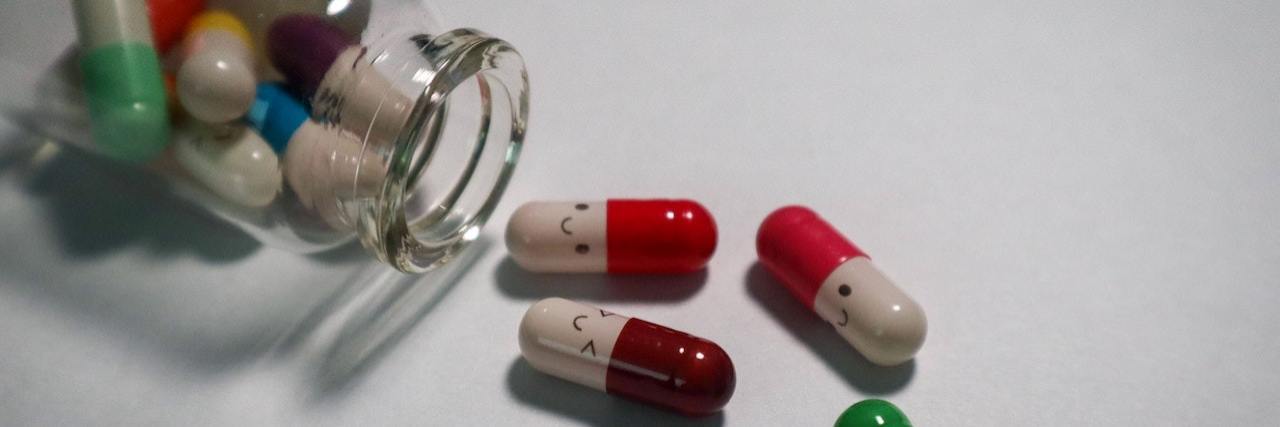One of the most common comparisons I hear in defense of psychiatric medication is that, “It’s just like insulin. You wouldn’t tell a diabetic to not take their insulin.”
I understand the goal behind saying this; in the past, I said it myself. The goal is to talk back to people who verbalize against taking psych meds. It is to remove shame from taking psychiatric medications by comparing it to a physical illness, like diabetes. They take insulin to regulate their sugar, and we can take meds to regulate our moods. Why should it be any different? I get that, and taking medications for your mental health shouldn’t be stigmatized, but comparisons like this only cause invalidation for both groups.
I have been on psych meds for over two years now, and it was a huge struggle to get me to take them. There is most definitely a stigma surrounding psych meds; many people keep it a secret that they take them for fear of seeming weak or lazy or a multitude of other reasons. I was also afraid of side effects, like gaining weight or being numbed out. And more so, I didn’t want to give up control. That was my biggest barrier. I was first prescribed medications in high school. It took multiple hospitalizations and multiple doctors to finally convince me to give meds a real try at the end of college. And by a real try I mean actually taking them consistently for several weeks, long enough to potentially see signs of if they are helping, instead of a couple days. I am lucky that the first med I gave a real try within several weeks had started to lift my mood. Having success on the first try is not how it always goes. Within several months though, I was no longer severely depressed. After years of being weighed down, I felt functional again.
But that doesn’t mean people with “physical” illnesses have it easy. To continue using diabetes as an example, we deal with different, yet parallel stigmas. People taking psych meds have to deal with people who think you should just be able to “choose” happiness to fix your problems. People with diabetes have to deal with hearing hurtful “if you eat too much sugar” and diabetes jokes.
I’ve never had to take insulin, so I cannot speak to what that is like on a personal level. What I do know from having had a roommate with Type 1 is that it is hard work to manage diabetes. I saw that it takes up time, money and plenty of finger pricks. Moreover, it’s not so simple as I ate exactly this much, so now I take exactly this much insulin. There is still a great deal of uncertainty involved in the process. Bodies can be weird, and our metabolism and blood sugar can be affected by a multitude of factors, such as sleep, hormones, and pure randomness.
Illnesses, “physical” or “mental” alike, all come with stigma. I put these words in quotations because is the distinction really necessary or even productive? Perhaps it just further stigmatizes both groups, for example by suggesting that “physical” illnesses are always be believed and given validation (not true!) or suggesting the “mental” illnesses are less real (also not true!). Not to mention, that these groups are not binary; there is considerable overlap.
Comparing mental illness to diabetes and psych meds to insulin simplifies the complexities of both illnesses. Diabetes is hard work, and so is depression or epilepsy or bipolar disorder or heart disease. These comparisons negate the unique experiences of all illnesses. Instead, we should appreciate and validate the different struggles people with illness deal with. And we should allow everyone to take medications that improve and/or save their lives, without fear of judgment or stigma.
Photo by little plant on Unsplash

